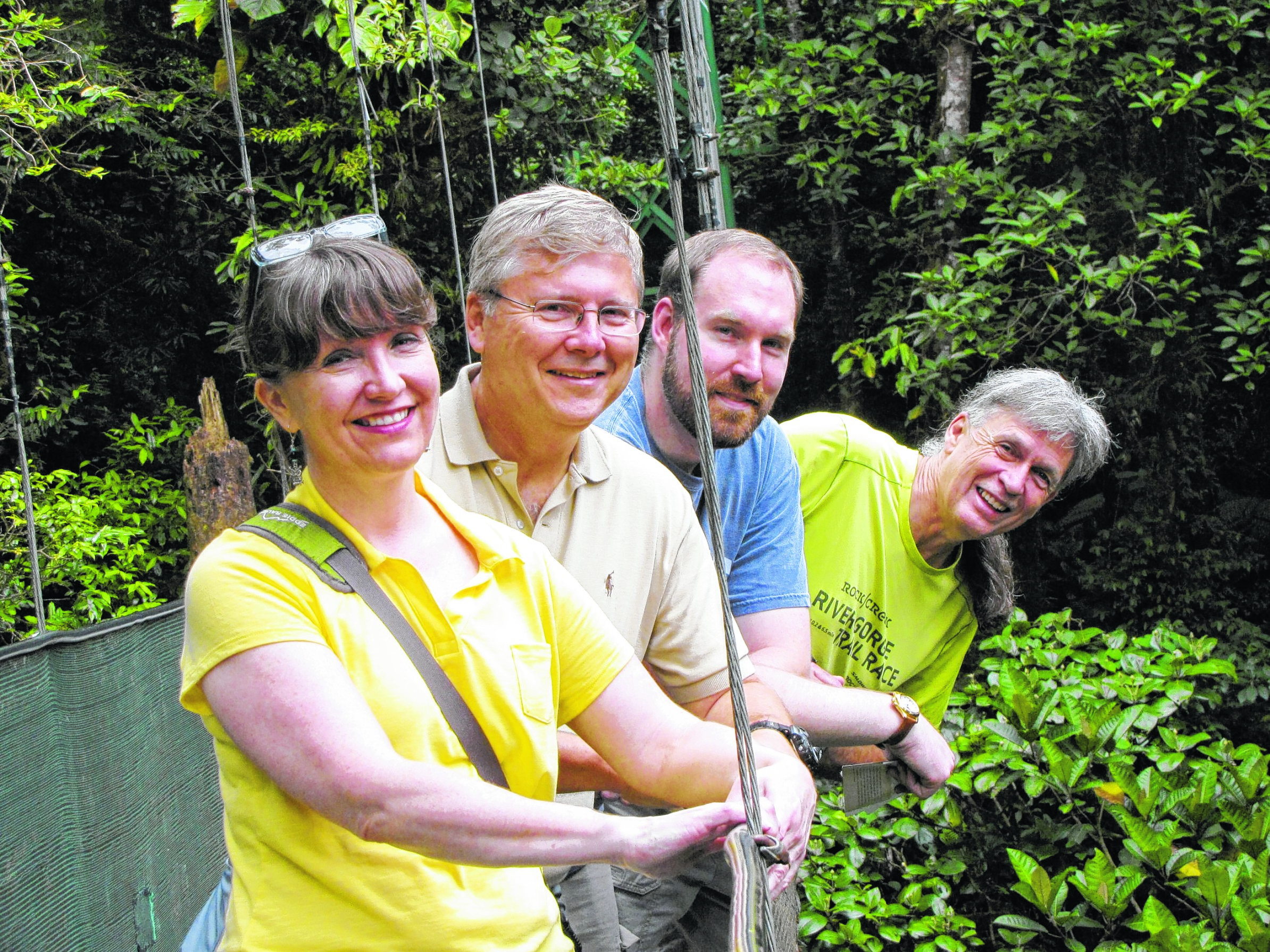Four teachers trekking through Costa Rica this summer were gathering ideas to teach to their students at Center for Creative Arts.
As school gets back in swing, world geography/energy systems teacher Ken Collins, biology/physical world concepts teacher Jack Pickett, biology/chemistry teacher Kelley Kuhn and Spanish teacher Micah Holloway are hatching big plans for the fall semester.
After experiencing firsthand the rain forest in Monteverde, the Arenal Volcano, a turtle refuge in Samara and museums in San Jose, the teachers' top project is to begin creating a botanical garden on their school's campus to complete by spring.
"We hope to do what Costa Ricans are doing on a smaller scale," said Kuhn, referring to the garden. "We'd really like to start a small native plant botanical garden. We'd like to have a protected area and build it up slowly."
Unfortunately, Kuhn said, CCA is presently surrounded by invasive species of plants, from privet to Mimosa to tree of heaven.
Whole Foods presented a $2,000 grant to the CCA team to help them get the garden started on the school's campus.
The team would like to remove some of the invasive species in order to plant native fruit trees like a pawpaw tree. The team plans to plant part of the garden in the old tennis court area and plant a small orchard by the softball field. Students will plan out the gardens in the fall to be planted in the spring. Students will also create a system to identify the plants to spectators.
The CCA teaching team also plans to incorporate their Costa Rican learning experiences in other ways via slide shows and videos as well as lesson plans.
"We all had different reasons for traveling," said Kuhn. "Jack and I teaching biology, we wanted to use the rain forest as an example of how to learn about biodiversity. I looked at diversity in ferns. I found 30 varieties of ferns in the rain forest."
Pickett said Costa Rica has the highest percentage of preserved outdoor sanctuaries in the world, so he plans to show videos of the preserves as lessons in class.
He and Kuhn said they particularly enjoyed visiting the Ostional Wildlife Refuge, where sea turtles' eggs are monitored by teenagers to make sure poachers don't steal them. The volunteers move turtle nests into fenced-in nursery areas for protection.
"People worldwide are trying to protect the sea turtles' eggs," said Pickett. "In Costa Rica they guard the eggs 24/7."
Collins said this fall he plans to teach his students how to write a grant to go on a field study too, in case they want to some day.
"This year the focus in my class will be on Costa Rica," he said. "They will write a grant to go to Costa Rica. My students will learn how to budget and plan for a trip and hopefully they will take trips. You can go to places you never thought you could go to through grant opportunities."
Pickett and Collins have both traveled to Costa Rica previously on UTC grants.
Kuhn said in Costa Rica the national motto is "Pura Vida," which means "pure life." She said the team found it interesting that the Nicoya Peninsula in Costa Rica is one of five blue zones in the world, meaning it is home to some of the happiest people on the planet.
"I would suggest to anyone to travel to Costa Rica," said Collins. "It's beautiful and the people like us. In Costa Rica the cool thing is that you can drink the water too. We do want to thank Public Education Foundation and Fund for Teachers for this opportunity."
The trip was made possible by a Fund for Teachers Grant administered through the Public Education Foundation.
